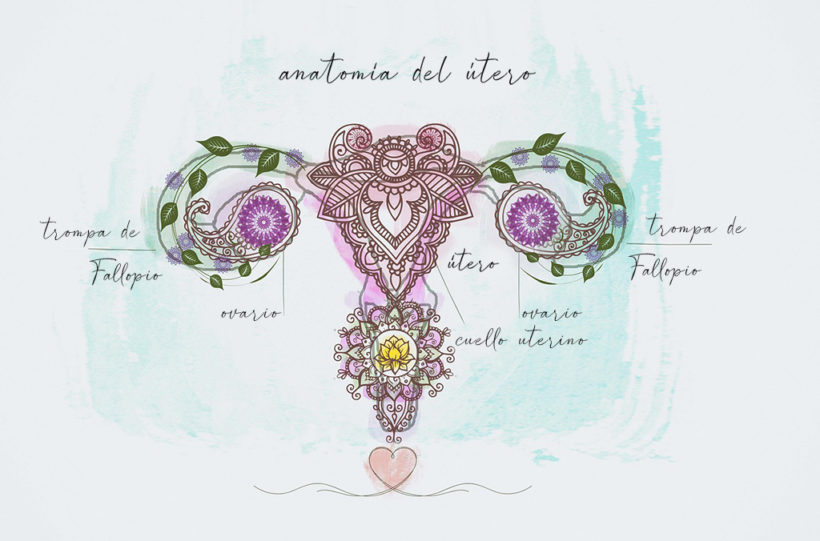The period, the month, the issue, the period, the mens, “Andrés came”, Juana la colorada, “it came”, “I’m sick”, indisposed. You’re nervous: are you menstruating? You are hysterical. From menstruation onwards, you become a “señorita”.
Menstruation is a hidden and forbidden subject, even today in the 21st century. If it is not addressed by health specialists, women and menstruating people cannot say anything because we are stigmatised. How much longer can we let this issue pass without making it visible and talking publicly about what happens to us? Menstrual blood is taboo; many women feel ashamed to talk about it in all naturalness. It is the normal vaginal bleeding that occurs as part of a woman’s monthly cycle. Every month, her body prepares for a possible pregnancy. If this does not happen, the uterus sheds its lining. Despite being a natural part of the reproductive cycle, the concept is charged with profound contradiction: it is synonymous with fertility, but also with shame.
Patriarchal civilisation has a marked intention to rise to power in order to subjugate women. Historically, the stigmatisation of menstruation is linked to religion, as it is associated with impurity in both the Koran and the Bible. “When a woman’s menses comes, she shall be unclean for seven days; whoever touches her shall be unclean until evening” (Leviticus 15, Bible).
Therefore, we were taught to hate our bodies and their expressions, to be ashamed of their cycles: women do not go to the bathroom to relieve themselves, they do not menstruate, we are ashamed to go shopping for protection, to be heard asking loudly for a pad or tampon, to have our clothes stained when we sit down, or because we are physically active or professionally engaged in a sport. Not to mention the disproportionate expense that leads us to hide the processes of our female biology: thousands of girls from all over the world who are part of the risk groups, the poorest, the unemployed middle class, have to give up their school, recreational or cultural activities because they do not have the money to buy pads, tampons or the “menstrual cup”. But this system, not being satisfied with all this, also charges us a very high tax which is called “the pink tax”.
This economic system imposes excessive costs on menstruating women and menstruating people, and the laboratories that manufacture menstrual management supplies have their shares raised on the stock exchange according to consumption. Globally, women and menstruating people are calling for this expenditure to be considered in tax cuts or to be subsidised.
In turn, these inputs generate tons of non-recyclable waste and can take up to years to degrade. They are pathogenic waste that is generally not adequately treated and their manufacture has a large environmental impact: it requires the excessive use of plastic materials, chemicals contraindicated for human health, water, and the clearing of native forests on an industrial scale. There is the possibility of sustainable menstrual management, with products that can be reused over long periods of time and would reduce the generation of non-recyclable and non-biodegradable waste.
What happens to our bodies is hidden, made invisible out of shame or guilt, and in this way the system takes advantage of this to generate hegemonic models only for its violent ends.
Thanks to the new generations who make it visible, we are in a permanent struggle to change these living conditions.
El proyecto impulsa la creación de un Plan Nacional de Gestión Menstrual Sustentable para que tengamos información completa sobre todos los productos de gestión menstrual que existen y su impacto en la salud y en el ambiente. pic.twitter.com/vGYmCO9oEQ
— Daniela Vilar (@danyvilar) November 4, 2020










